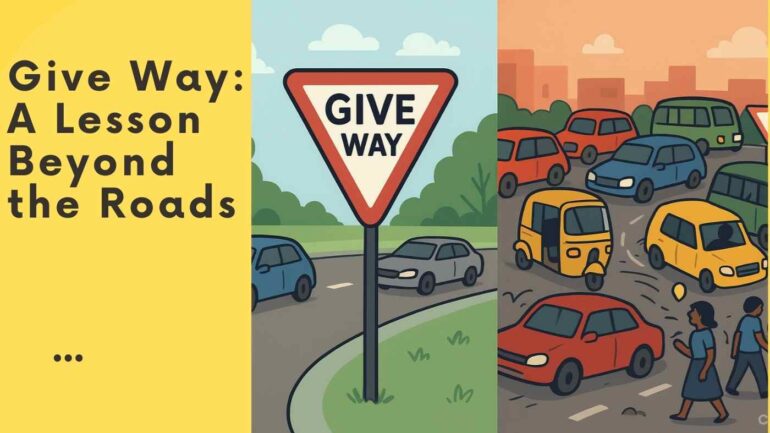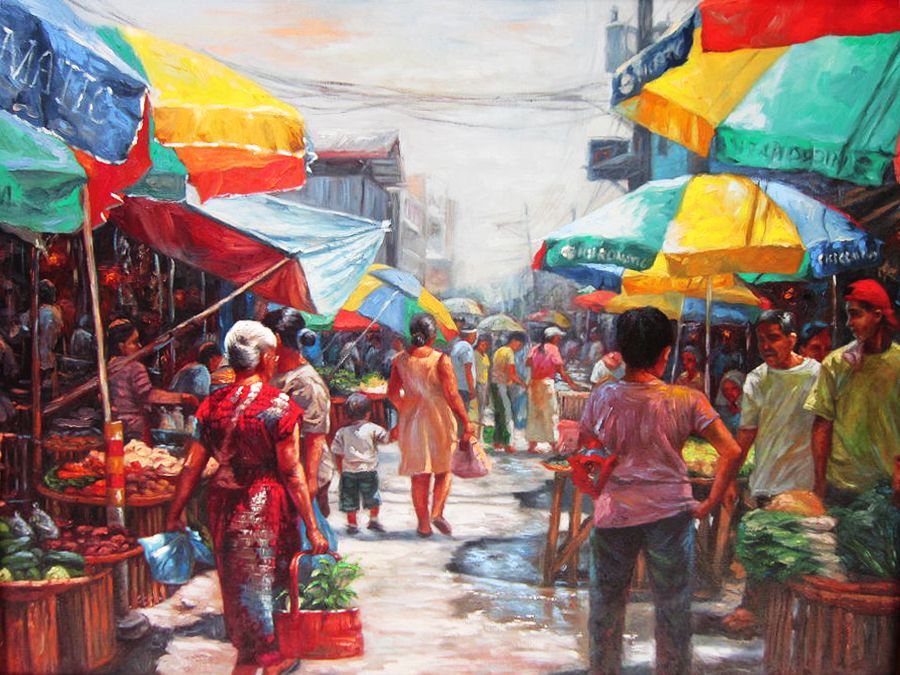It is late afternoon in London, the kind of soft golden light that makes even tarmac look gentle. I find myself standing by Hampstead Heath Gate Junction, a place without the fanfare of traffic lights or the watchful eyes of wardens. Just a triangular sign—Give Way—as modest as a whisper, yet heavy with meaning.
Cars roll up slowly, drivers’ eyes darting left and right, but their movements are measured, almost choreographed. A vehicle on the right eases forward while the one on the left pauses without fuss. Each driver waits their turn, no matter how long the line, until it is their turn to move. Patience governs the flow.. No horns, no rush, no reckless gamble. In seconds, the road clears again, each motorist gliding away as if bound by an invisible thread of order.
This is not magic, nor is it mere politeness. It is law, married to discipline, sealed by consequences. Every driver knows the cost of carelessness: points on the licence, a fine, higher insurance, maybe even the loss of one’s job. And what about the ultimate price? Life. The result? A culture where yielding is not weakness but wisdom.
Now shift the lens to Ozalla Four Corners in Enugu State, Nigeria—a junction infamous for its daily drama. The roads meet like clenched fists, and instead of harmony, there is a constant collision of wills. The Ozalla four corners junction is just a tip of an iceberg of so many other similar scenarios across the country.
Here, everyone is in a hurry to go nowhere. Cars lunge forward like impatient horses, tricycles—keke napepes—zigzag through gaps not meant for them, their oversized horns blaring like wounded elephants. Motorists invent new lanes on a whim, piling into every available inch until they choke one another into a standstill.
Pedestrians hover at the edges, trapped in hesitation. There are no zebra crossings, signals, or thought spared for the vulnerable or the handicapped. To cross is to gamble life against metal. And when a VIP convoy barrels through, escorted by armed police, the sea of vehicles splits open, swallowing its pride until the sirens fade. Then the chaos resumes—louder, angrier, more hopeless.
In a land where maintenance is an afterthought, vehicles limp along until they die on duty, collapsing in the middle of traffic like weary soldiers abandoned by their generals. Sometimes, the hold-up lasts hours. No tow trucks arrive, no swift solution—just men sweating, women sighing, and tempers boiling under the sun. It is not traffic alone; it is a metaphor of our national condition: disorder elevated to normalcy.
The irony is painful. In Britain, there are over forty-one million licensed vehicles, most of them cars, gliding through narrow streets and ancient towns without choking themselves into chaos. In Nigeria, with barely twelve million registered vehicles, the roads suffocate daily under a weight far lighter.
The numbers should shame us. Fewer cars, yet heavier jams. Less traffic, yet longer gridlock. It is not the load that breaks the bridge but the manner in which it is carried. Where rules rule, order thrives; where rules are broken, chaos multiplies.
Our problem is not the absence of roads or cars but the absence of attitude—the refusal to see the law as a lifeline rather than a leash. Until that changes, statistics will remain stubborn witnesses against us.
Step back from Ozalla Four Corners, and the pattern reveals itself like cracks in dry earth. Roads are only the beginning. The same impatience, the same disregard for rules, spills into government offices, schools, town unions, and workplaces.
In ministries, files pile up like unyielding traffic jams, staff manoeuvre around protocols as if they were optional cones, and the VIPs—those armoured vehicles of authority—cut lines with impunity. In schools, lessons stop midway for petty power struggles; in town unions, meetings dissolve into chaos as elders jockey for attention, not action.
It is a culture where the law is a suggestion, not a sword; where the consequences of breaking rules are whispers, not thunder. Where Britain has the “give way” triangle, we have imagined ones that vanish under the weight of our attitude. A tricycle in the traffic jam mirrors the office worker bypassing procedure; a horn-blaring driver mirrors a leader bulldozing accountability.
Every pothole, every stalled car, every honk is a lesson, if only we would read it. It teaches that progress requires discipline, respect, and foresight—but these are luxuries in a society that prizes clever shortcuts over structured paths. Until we internalise the simplicity of yielding, whether at a junction or in life, we will continue circling in place, exhausted, and going nowhere.
And so, the lesson is clear, stamped in exhaust fumes and impatience alike: until we learn to give way on the road, we will never find the way forward as a nation.
Order is born from obedience, discipline, and respect for consequences—not wealth, not connections, not clever shortcuts. The British yield to the right because they know what happens when they do not; we fail to yield because we have forgotten that laws exist to lift, not to bind.
Every stalled car, every honking keke napepes, every impatient push through traffic is a mirror of our national soul. Until we mend our attitude, invest in maintenance of ourselves and our systems, and embrace rules as allies rather than obstacles, progress will remain a dream, circling in perpetual traffic.
Perhaps one day, we will see the hum of engines and the swish of tyres as a symphony of order rather than a cacophony of chaos. Until then, we are drivers forever stuck in our own impatient gridlock.


